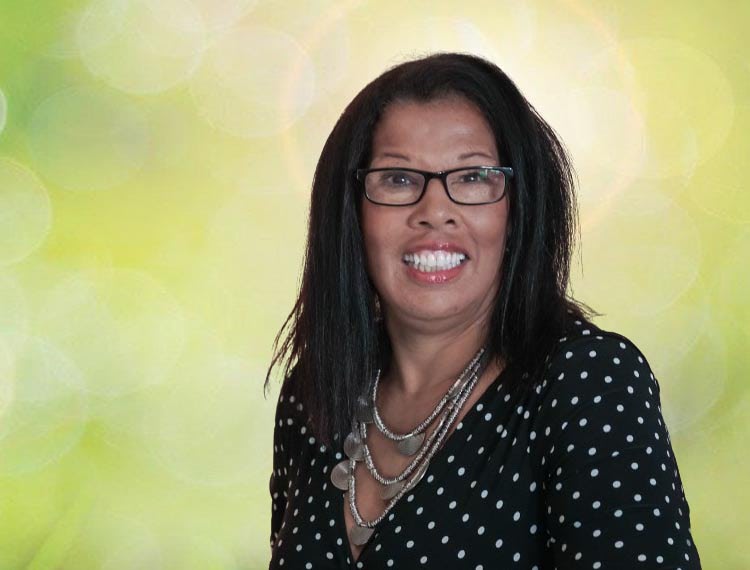Could Education have saved George Floyd?

I have been trying to find the right words, more than that the right language. It feels very strange to be recounting something so personal when for years this would have caused me so many penalties. This is part of my story. Flashbacks to my childhood growing up in a three roomed basement flat in Hackney with my single white mother who always seemed to be searching for my Jamaican father. A mixed-race child, a coloured child, a half caste. My education journey and success now seem to add up to a series of events where I was hidden in plain sight.
Education was my salvation and my opportunity.
My personal history is in parallel to world events that should have negated and impeded my progress as a black child, a black teenager, a black woman. Yet, education, primary, secondary, teacher training, degrees all contributed to my passage through a white, privileged world. I navigated it all but at what cost? What did I learn? To survive, thrive and compromise. I became a chameleon to fit in, be accepted and learn the code. Education both aided and abetted a way of being, to be accepted. However, this is not acceptable in 2021.
This week has brought back into sharp focus two seemingly separate pieces of history that affected me indirectly but profoundly.
- Firstly, Subnormal: A British scandal, a BBC One programme documenting the writing off black children in the 70’s as Educationally Sub-Normal.
- Secondly moving to present day, today to be precise, is a piece of history relating to one man but affecting millions of others, not the minority but the increasing majority. The anniversary of George Floyd’s death at the knee of a police officer.
So, what is the connection?
When the time came for me to progress from primary to secondary my mother fought tooth and nail for my right to go to Grammar School. Two schools rejected me as they only had ‘limited places’, replace that for, quota. I finally got a place at Skinner’s Company School for Girls. More enlightened about race or simply filling their quota? I escaped being sent to an ESN school but I have vague recollections of conversations above my head as to my suitability and ability for a Grammar School. My mother knew that if I was going to get anywhere in life education was going to be the key that opened the doors. Surely it has, but there has been a cost to working in the system and cracking the code, fitting in and ignoring the messages of racism to be included.
Fast forward to this day a year ago.
Could education have saved George Floyd?
Not just his education, but the education of the bystanders, including police officers, who watched his pain and his plight? I came across a range of photographs depicting those that saw what happened. They were also the same witnesses at the trial. They ranged in age, ethnicity, gender and possibly social class. Did their educational experience make them feel and act in a helpless way? Rather than empowering they were disenfranchised to act in a humanitarian way that would have saved him. We are often paralysed by the systems we are forced to live and work in. This is not just a US problem to solve as BBCs Fighting the Power: Britain after George Floyd clearly articulated. Racism is a pervasive destructive force based on a spurious construct of colour. Changing the narrative for those who have grown up within a racist world is one way, changing education and giving positive voice to the youngest so we never again witness atrocities based on race, colour, ethnicity will make the whole world a better place.
Anti-racist education is not just a nice to have it is now an imperative for every organisation if we are to embed not just equality and diversity but inclusivity and belonging. It can be a part of education in so many ways no matter what the age. However, the mistake often made is that the victims must solve the problem of inequalities not the perpetrators and the gatekeepers.
Work by the Black FE Leadership Group in developing a 10pt Plan and an associated Anti-Racism Train the Trainer Toolkit have been both strategic and innovative in their approach.
However, this tool is not just for FE it is of universal use. My education skills, abilities are just one aspect of being able to use this to educate and inform others. Another aspect is being able to emerge fearless from the shadows with my authentic identity.
My work, after many years in Further Education, is now entrepreneurial and affords me the luxury of being able to work in areas that are my passion, coaching and mentoring, together with developing organisations. These are all rooted in inclusive diversity. Working with associates that bring their diverse identities, experiences and skills to bear on projects, training and organisational change is both exciting and challenging.
I must believe that a different type of education that tackles systemic inequalities and the intersectionality of discrimination, bias and prejudice is the way forward. I do not want to be part of a society that continues not to see what is in plain sight.
Dr Maxine Room CBE, Medacrii Associates Ltd
The Black FE Leadership Group 10 Point Plan |
|
|
Curriculum
|
Climate
|
Culture
|
|
|
Communications
|











Responses